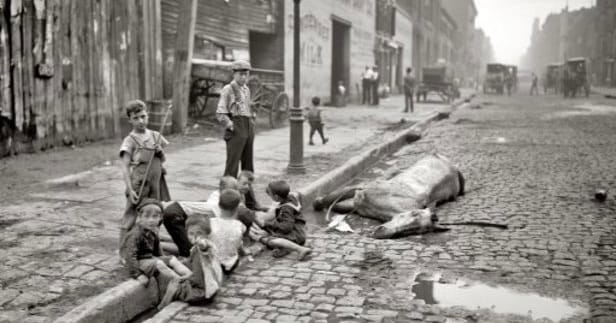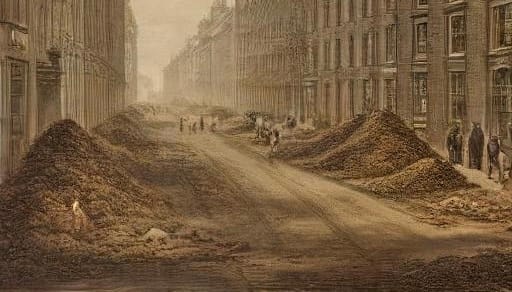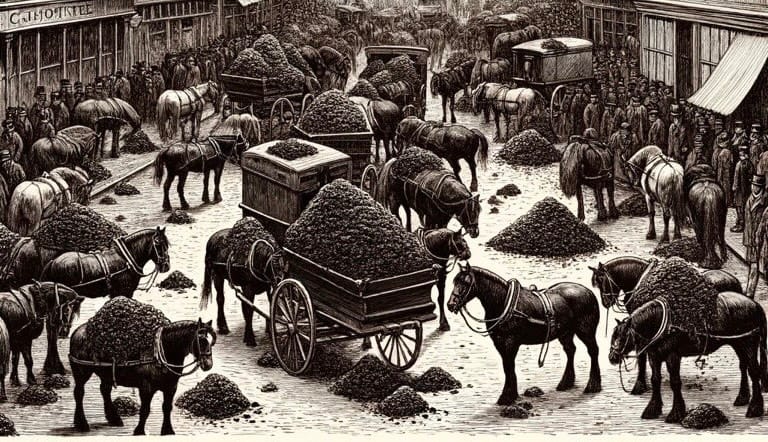Everywhere you turn today, it seems there’s another source of bad news. Endless wars, rising inner-city crime, and an American political climate that even Aaron Sorkin couldn’t dream up.
Yes, we are all living in a tumultuous time in history, and it’s creating a lot of anxiety. Much of this anxiety is fueled by the non-stop, 24/7 news feed we have access to. The constant drip, drip, drip of bad news is exhausting.
Regardless of whether you lean politically blue or red, we all want someone to blame for how we feel. More than that, we want somebody to fix things so we can relax again, right? That’s where the polarization comes in.

I think we can both agree that the goal of the news media today is to keep us anxious and polarized. The point is to scare viewers into tuning in so the networks can sell advertising for expensive drugs like Jardiance and Ozempic.
Scare tactics and the perception of bias have created an enormous amount of distrust of the media. A recent Gallup report shows only 18% of Americans have a high level of confidence in the accuracy of newspaper reporting, and just 12% trust TV news. Not surprising at all.
So, has the world always been this anxious and polarized or is this something new? Well, let me tell you a quick story about poop. Seems appropriate, right?
The History of Horse(power)
In 1900, almost every vehicle on New York’s streets was horse-drawn. More than 150,000 horses were needed to keep the city on the move.
Many of those horses were used for Hansom cabs—small, civilized carriages drawn by horses.

In New York and other major metropolitan cities, thousands of Hansom cabs traveled the roads every day. They were basically today’s yellow cabs.

There were also thousands of horse-drawn buses crisscrossing the city daily. A horse-bus, or horse-drawn omnibus, was a large, enclosed vehicle used for passenger transport. Each one required a team of twelve horses to complete its daily routes.

You might think that horses are a nice alternative to carbon-emitting automobiles. Not so fast, my friend.

As you can imagine, having that many horses on the streets created problems. See, the average horse produces 15-35 pounds of manure a day. With that many horses on the road, you’re looking at around 3,000,000 pounds of horse 💩 daily. And, with proper hydration, those horses also generated about 40,000 gallons of urine every day.
Plus, keep in mind that reliable indoor plumbing didn’t exist in 1800, so you couldn’t just flush a toilet. Most ordinary folks simply opened a window and dumped their waste into the street. As you can imagine, between horses and humans, those streets got pretty nasty.

All that waste fermenting out in the open led to serious typhoid epidemics and other life-threatening illnesses.
But wait, there’s more.
The average lifespan of a working horse was around three years. So, oftentimes, horses would literally drop dead on the street. Their operators would simply unleash the horse and leave it to rot. Weeks later, after the horse was properly decomposed, the owner would return to saw the horse into pieces for removal. (That part isn’t really relevant to the story. I just thought it was shocking.)

Yes, you may have already guessed it, but in the early 1800s, the world’s major metropolitan areas were poisoning themselves to death.

The London Times reported that, based on scientific projections by experts in the field, in 50 years every street in London would be covered in horse manure nine feet deep.
Pardon the interruption… I’ve curated a list of other independent newsletters that you might like.(Refind & Smartr Daily are my favs.) click to check them out. It helps me keep Wit & Wisdom free for my 25K subscribers.
To help alleviate the poop problem, contractors were hired to clean up the streets. However, they often dumped it all right into the ocean. As the tide changed, that poop washed up on the beaches, creating an even bigger problem.

Journalists know this period of history as the “Great Horse Poop Emergency of 1894.” For several years, the Press was hyper-focused on the doomsday scenario of the nine feet of poop that was just around the corner. The newspapers declared that the end was nigh. The people fretted while newspaper sales boomed.
For the next several years, experts gathered in emergency sessions all over the world to study potential solutions for the looming crisis.
Newspapers ran editorials from experts in the horse dookie business. Some suggested removing horses from major city streets, while others proposed outlawing them altogether to avoid the impending catastrophe.

But, guess what? That nine feet of horse ca-ca? It never happened.

If Plato inspired the thought that necessity is the mother of invention, then perhaps the American chap Henry Ford read the philosopher’s works. In 1903, the Ford Motor Company rolled out the Model A automobile.

In the first year of production, Ford produced 1,750 Model A’s. While they belched black smoke full of carbon monoxide and carcinogens, there is one thing the Model A automobile didn’t produce: dookie.
And, just like that, the Great Horse Poop Emergency of 1894 was over.

The purpose of this poop story is simple—to remind you that even back in 1894, people were jacked up and anxious about the future, and the press did its best to keep them that way. Individuals were also probably just as polarized about the potential solutions as we are today.
And, as you and I both know, everything turned out pretty good.
We can’t possibly see around every corner or predict the future. However, I’m betting that if someone from 1894 were to come back to life, they’d be pretty astounded by the progress we’ve made on everything, especially in terms of poop.
How often does our American media spin us into a frenzy today? How often do they declare that the end of something, like democracy, is near? It isn’t. But, how often do you buy it?
Way back in 1894, people all over the world lay awake at night worrying about nine feet of feces. And what did that crisis turn into? More feces. So, the next time you hear one of the talking heads trying to get you worked up, think of the Great Horse Poop Crisis of 1894. I want you to think—aw, poop.
(Don’t forget to sign up for a couple other really great newsletters. You can always unsubscribe. I promise it’s good reading.)
So, did I get it right, or is something else causing all this anxiety and consternation? I want to hear from you. Please click the button below to start a conversation with me. I read and respond to ALL comments.

